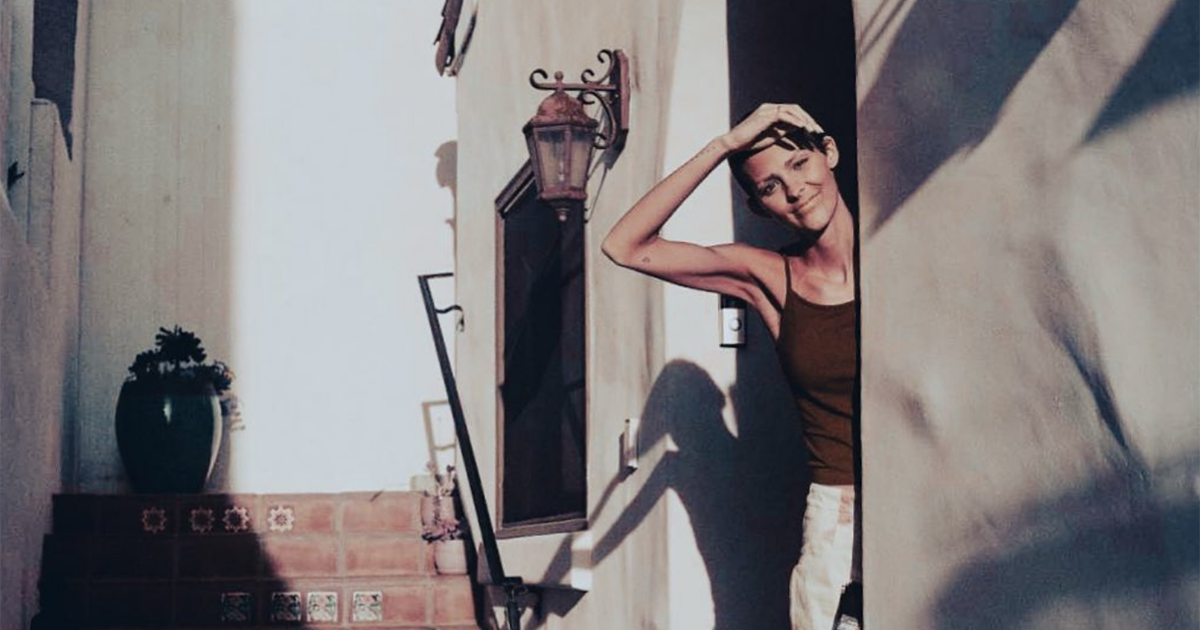Accepting Cancer
- Accepting cancer after a diagnosis can be one of the hardest things to do, and this is something Nightbirde can surely attest to. On Instagram, she writes: "I'm hovering in a place where I don't need to prove myself anymore or be remembered.”
- Nightbirde began her battle with breast cancer in 2017 when a 4-centimeter tumor was discovered in her breast.
- Accepting cancer looks different for everyone. Remember that battling cancer is a very personal experience and there's no right or wrong way to grieve.
The former America's Got Talent contestant Jane Marczewski, who goes by stage name Nightbirde, has been dealing with breast cancer since 2017. She writes that she's struggled a lot, but doesn't know "a whole lot about pain" physically or emotionally. “I guess there isn’t a whole lot to know about it,” she writes. However, she's finally reached a place where she feels at peace with her metastatic breast cancer.
Read MoreView this post on Instagram
"I'm not sure if I know how to fight for my life, but I do know how to open my eyes in the morning, and that's not nothing. I don't know exactly what it sounds like when God talks, but I recently started remembering my name because I heard myself whisper, 'Jane you are so loved.'" And just as accepting cancer is important, so is self love.
She also calls out the support of family and friends: “I do know a lot about how ordinary people save the worldby showing up with soup, by saying, "sweetheart, I am so sorry," by singing old songs, texting the heart emoji, weeping.”
Nightbirde's Cancer Battle
Nightbirde, 30, began her battle with breast cancer in 2017 when a 4-centimeter tumor was discovered in her breast. She underwent six rounds of chemotherapy and a double mastectomy a surgery to remove the breasts for treatment.
But her world turned upside down on New Year's Eve (which also happens to be her birthday) in 2019; she was diagnosed with stage 4 breast cancer. Her doctors discovered multiple tumors on her liver, lungs, lymph nodes, ribs and spine. She was told she had three to six months to live, but she surprised doctors with her strength, and she's still fighting today.
Aggressive Breast Cancer in Young Women
Nightbirde was young when she was diagnosed with stage 4 cancer just 29 years old. Women don't typically begin to undergo regular mammograms until they turn 40. Dr. Ann Partridge, an oncologist at Dana-Farber Cancer Institute in Boston, tells SurvivorNet that about 260,000 women are diagnosed with breast cancer every year in the United States.
And about 11,000 women aged 40 and younger are diagnosed with breast cancer annually in the country a small percentage of that 260,000. But in some ways, she says, a diagnosis for a younger woman can often be even more devastating because the cancer is likely to be a more aggressive form, and at an advanced stage. This is because screening for younger women isn't standard.
"Young women are more likely to be diagnosed with breast cancer that is more aggressive," Partridge says. "Their disease is more likely to be of the subtypes of breast cancer, because breast cancer isn't one disease the ones that are more aggressive and tend to be what we call a greater stage. That is, they're more likely to have bigger tumors and more likely to have lymph node involvement at diagnosis than older women."
Accepting Cancer
There's no cure for metastatic breast cancer; that can be a hard thing to accept if you or a loved one receive this diagnosis, as Nightbirde knows.
"What we find is that everyone comes to acceptance in their own time with support that some people never really reach acceptance," Marshall Gold, a psychiatric mental health nurse practitioner at the Johns Hopkins Hospital in Baltimore, tells SurvivorNet.
Prioritizing Mental Health & Acceptance After a Cancer Diagnosis
"I think for me as a palliative care provider," Gold adds, "it's just meeting people where they are in their illness and supporting them regardless of where they are on that trajectory of acceptance or denial."
Accepting cancer looks different for everyone, as Gold says. Remember that battling cancer is a very personal experience and there's no right or wrong way to grieve.
"I think the ways we can support these women are just to honor really how horrible the diagnosis is and the uncertainty that lies ahead and to try to reframe what is most important to you," Gold says. "What do you continue to live for? What brings you joy? To try to see that little silver lining in a horrible situation."
Learn more about SurvivorNet's rigorous medical review process.


